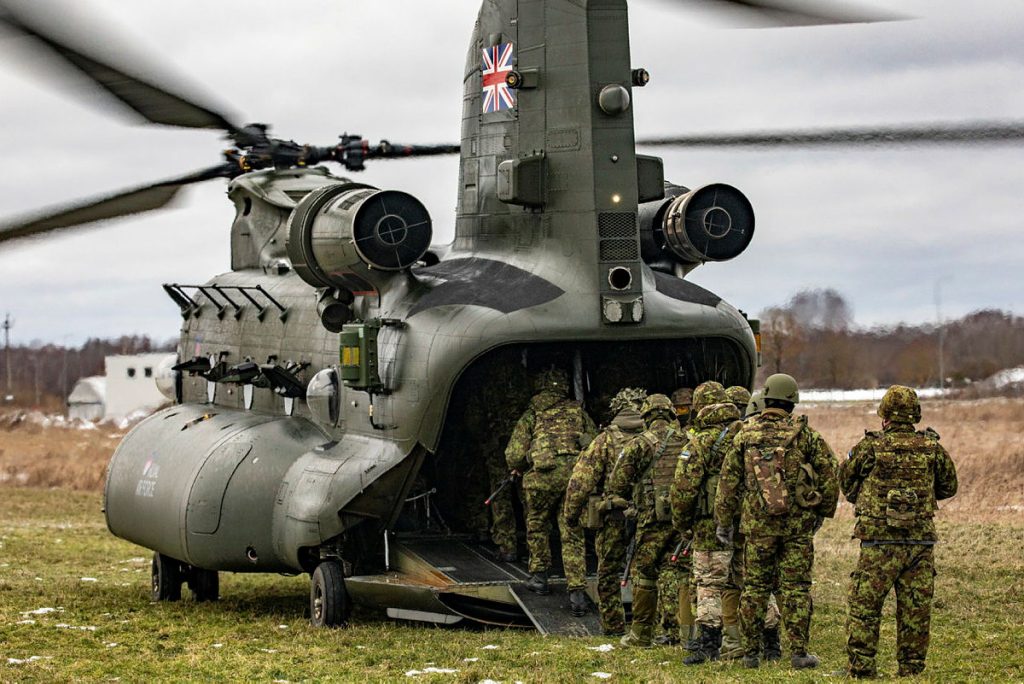Less than 48 hours after Israel launched a series of airstrikes on Iran’s nuclear facilities, Britain has begun deploying military jets and refuelling aircraft to the Middle East. The move, authorized by Prime Minister Sir Keir Starmer, has ignited a fierce national debate over the UK’s preparedness for a wider war—possibly World War III.
The strikes by Israel, which targeted key Iranian military and nuclear sites, have drawn mixed reactions across the globe. In Britain, the decision to send Royal Air Force (RAF) assets to the region has raised critical questions: Is the UK truly prepared for war? What are the political and economic consequences for British citizens?
Starmer Orders UK Military Mobilisation to the Middle East
Speaking from his jet en route to the G7 Summit in Ottawa, Prime Minister Starmer confirmed the UK’s military movements in response to escalating tensions in the Middle East.
“We are moving assets, we’ve already been moving assets to the region, including jets, and that is for contingency support across the region,” he said, declining to provide further operational details.
The Prime Minister emphasized that the situation is “developing and ongoing,” but made it clear that Britain’s interests and allies in the region must be protected.
Though the UK was excluded from Friday night’s coordinated defence against Iranian missile attacks on Israel, Starmer said the government remains committed to protecting British citizens and interests.
Public and Political Concern Over Escalation
While government officials claim the deployments are precautionary, critics warn that the UK is inching dangerously close to open military conflict—without a clear exit strategy.
A former top British official, speaking anonymously, warned:
“You don’t start a war without an execution plan. Britain’s involvement at this early stage may have long-term financial and geopolitical consequences.”
Even within Parliament, the move has sparked sharp divides. Some MPs have voiced concern that the public has not been adequately informed of the risks involved in escalating military presence near an active warzone. However, Iran has publicly threatened to target Western military bases, including British facilities in the region. The U.S. and France have also begun repositioning assets in anticipation of broader regional conflict.
Strategic Silence or Political Calculation?
Pressed on whether he had been briefed about Israel’s pre-emptive strike on Iran’s nuclear sites before it happened, Starmer refused to comment on intelligence matters.
“I’m not going to start answering what goes around on intelligence channels,” he told reporters.
This has led to speculation about whether the UK was left out of high-level military coordination or chose to stay neutral in the early stages of Israel’s offensive.
Meanwhile, Foreign Secretary David Lammy has been in contact with multiple Middle Eastern nations, including Iran, to encourage de-escalation. Starmer described his own phone call with Israeli Prime Minister Benjamin Netanyahu as “good and constructive,” adding that it focused on “safety and security.”
Conservative Opposition: UK Must Stand with Israel
Conservative Party Leader Kemi Badenoch voiced strong support for Israel, warning that appeasement would only embolden Iran:
“Warm words will not stop Iran. If Israel sees Iran developing nuclear weapons, it cannot just sit back. The true escalator is Iran, not Israel.”
Her remarks highlight the growing divide between those calling for restraint and those advocating for a more assertive posture in the Middle East.
Economic and Civil Impact
The potential costs of escalation are not just military. Analysts warn that prolonged UK involvement in a Middle East conflict could:
- Spike global oil prices and lead to higher fuel costs for British households.
- Force an increase in defence spending at the expense of domestic services.
- Raise the risk of terror threats on UK soil, especially in urban centers.
There is also growing anxiety over potential public backlash, as the UK electorate may be reluctant to support another military venture in the Middle East.
As world leaders gather for the G7 summit, Britain stands at a strategic crossroads: commit further military resources to a rapidly expanding conflict, or push harder for diplomatic solutions that may no longer be viable.
One thing is clear—Britain is no longer a bystander. With assets on the move and threats looming, the UK must now navigate one of its most volatile foreign policy challenges in a generation.
Stay with New Daily Prime for exclusive updates, expert analysis, and international reactions as this story develops.
Read Also:
Middle East: UK, US, France , Australia rally behind Israel’s offensive on Iran
What you need know about Israel-Iran conflict as UN security council meets
U.S. pulls diplomats from Middle East as tensions with Iran rise



